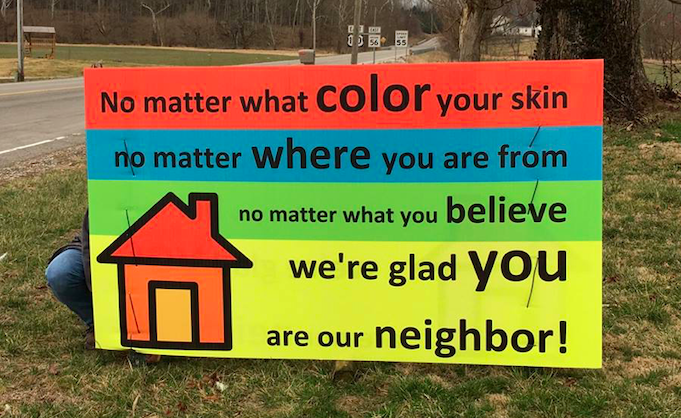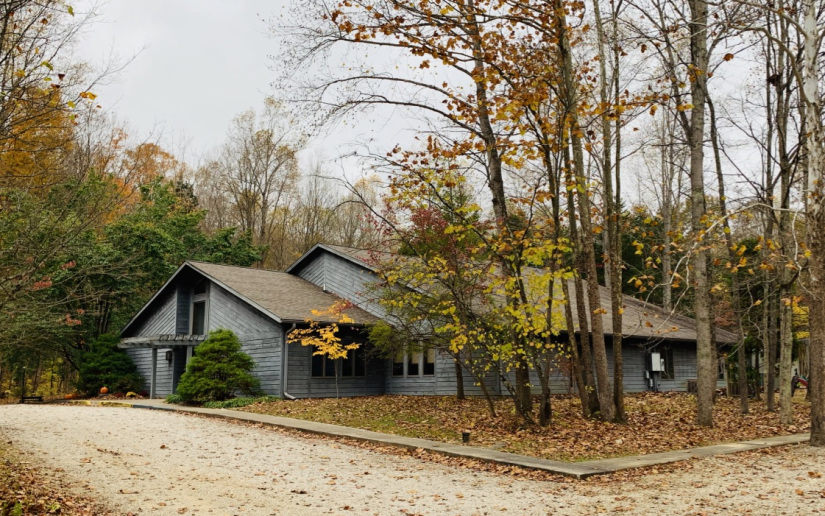To those of you who are new, we hope this website gives you a glimpse into life at PMF. We invite you to join us!

Welcome Statement
We are united in our desire to follow Jesus and to grow in our relationship with each other and God. We welcome ALL persons to worship, study and fellowship with us as we continually seek to be faithful disciples of Jesus.
PMF values the diversity that exists within its participants. Our congregation wants to be welcoming, kind, respectful and gracious. Newcomers are welcome to become active participants of PMF and to use their gifts in leadership or teaching roles.

Congregational Core Values
The core values of PMF point to our distinctiveness as Anabaptist and serve as a guide in decision making.
- Jesus Centered / Growing in Experience of God’s Love
- Global Awareness
- A Worshiping Community; Sharing Concerns, Resources & Faith
- Embracing Children and Youth
- Peace, Justice, & Biblical Nonviolence in Action
- Community Embracing Diversity
- Servant Leadership
- Valuing the Written & Living Word
- Care for Creation
- Loving God and Loving Neighbor
We Are Anabaptist Mennonites
Although we have Christian ties, we are neither Catholic or Protestant. We are Anabaptist. No, not anti-baptist. Anabaptism refers to being re-baptized.
Anabaptism began in the 16th century in Europe. Our faith ancestors broke away from the state’s religious practice of baptizing infants. Through scripture they came to believe that one should make a decision to follow Christ and voluntarily be baptized. Adults who chose to follow Christ and were baptized as infants were re-baptized. They were persecuted and even killed for their beliefs and actions.
Families today, often choose a dedication of their infant to God. The Congregation makes a promise to help support and teach the child Jesus’ ways.
Vision Healing & Hope Statement
Vision: Healing and Hope (we embrace this vision of the Mennonite Church USA)
God calls us
To be followers of Jesus Christ
And by the power
Of the Holy Spirit
To grow as communities
Of grace, joy, and peace
So that God’s healing hope
Flow through us to the world
Congregational Covenant
Preamble
We admit our sinfulness and the need for God’s forgiving grace in our lives. We desire to focus on Christ, the center of our life together, and to allow his transforming power to work within us. Accepting God’s grace, we commit ourselves to living under his reconciling love.
Covenant
In covenanting together, we affirm that Jesus Christ is Lord. We gratefully acknowledge him as our Lord and accept his teachings as the way to live. We recognize the importance of:
Regular Bible study, worship with others, and prayer as a vital part of our Christian life.
Taking each other seriously, contributing our gifts and caring for one another in love to strengthen the Christian Body.
Living and sharing the Good New as Christ has taught us and as the Holy Spirit enables.
Leadership
Pastor: Paul Brubaker
Pastor Elder Team: Louise O’Connell (chair), Phil Mininger, Veronica Sukup, Stori Sullivan, and Paul Brubaker
FAQ’s
What makes Mennonites unique?
We have a lot in common with our fellow Christians, but we do have some unique qualities. We have a non-hierarchical leadership, service based upon giftedness not gender or other identity markers. We read the whole Bible through the lense of Jesus. We discern with each other as a community about what the Bible means and how we should apply it to our life. Mennonites keep it simple. We have fewer official positions. We are bound together by community and shared values.
How formal is PMF? What should I wear?
PMF is very informal. You will find a wide array of clothing worn at PMF. Some of us are in dresses or dress pants. Some of us are in jeans and t-shirts. Please, come as you are.
Do women wear head coverings at PMF?
Historically, Mennonite women wore head coverings in public. Some Mennonites might continue this tradition, but it is not widely practiced in Mennonite Church USA or at PMF.
Can people become Mennonite or do you have to be born a Mennonite?
We welcome all who wish to be a part of PMF. Our congregation is made up of people from Mennonite backgrounds and also many who grew up in many other denominations, or for whom this is their first formal church experience.
How can I become a part of Paoli Mennonite Fellowship?
It’s simple. Show up for worship. We welcome you with open arms.
You can get to know us better at potlucks, Sunday School, small groups, and many more activities.
There are many opportunities for you to get involved on Sunday and throughout the week.
Yearly orientation classes are offered to help new participants learn more about PMF and the Mennonite faith.
Are Mennonites pacifists?
Yes. We believe that nonviolence is an important part of Jesus’ teachings. This belief does not include us ignoring conflicts or injustices . We believe in fighting injustices with good. The Bible refers to this peace as “shalom.” We strive for shalom, not by arming ourselves with weapons, but arming ourselves with love and mercy.
What is the difference between Mennonites and Amish?
Mennonites and Amish both came from the same Annabaptist traditions. The Amish broke away due to their stricter beliefs. Mennonites engage in the wider community, where Amish tend to separate themselves from society. Amish also more careful of their use of technology, remove themselves from politics, and dress simply.
More information can be found at the Third Way

